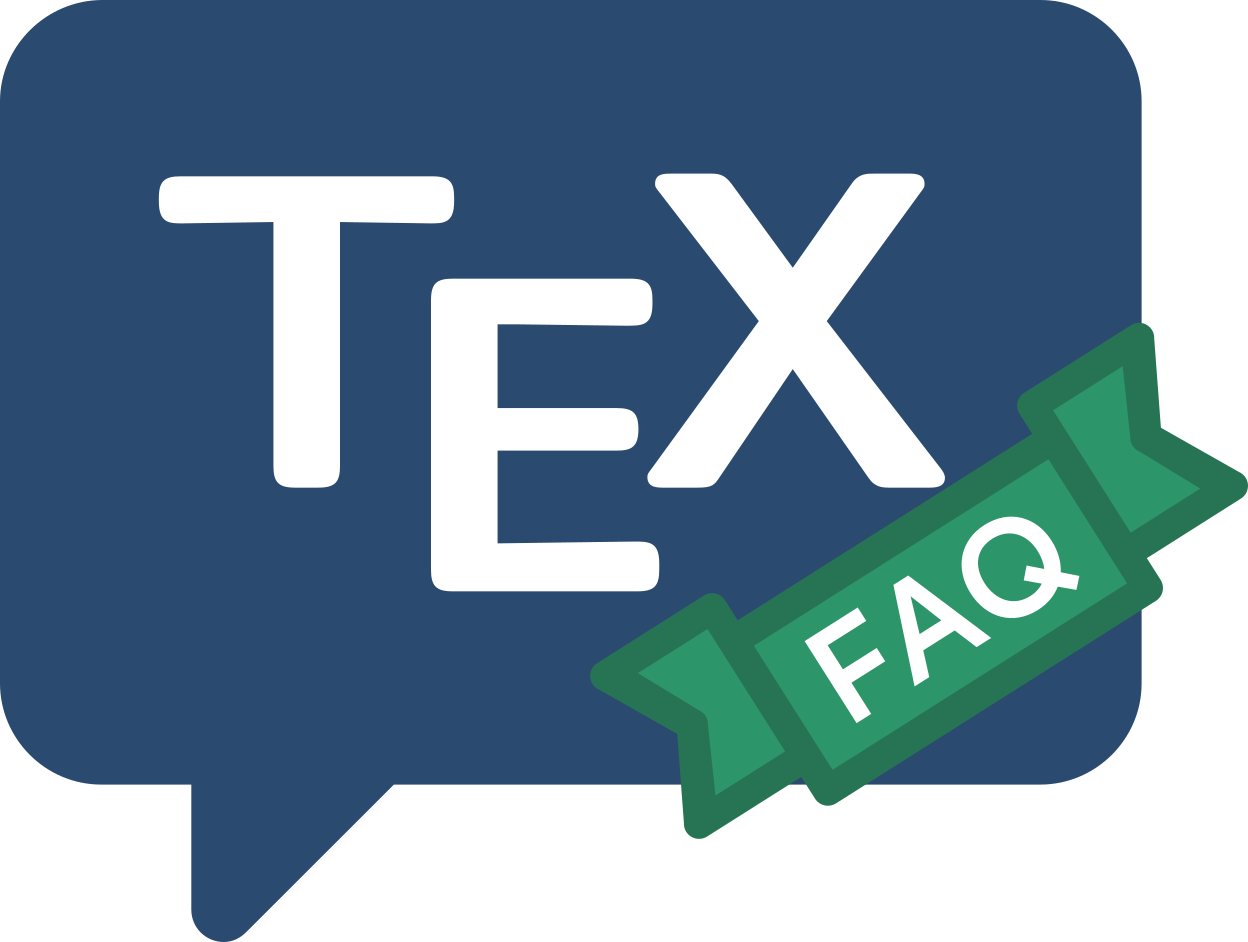
Frequently Asked Question List for TeX
Misc
Alternatives to TeX
The idea of using a programmatic approach to typeset documents is not limited to TeX, and there have been many different approaches explored over the years. Some of these seek to potentially replace TeX, others are more complementary. The use of (La)TeX-like syntax is seen in some, though not all, of these.
The projects listed here are entirely distinct from TeX or its derivatives (they are not “TeX-like” programs).
Active projects
Typst
Typst is a typesetting system written in Rust. It uses a markdown-like input syntax and includes an interpreted scripting language. Typst focuses on being easy to learn and create templates for and features fast compile times.
Patoline
Patoline is a typesetting system written in OCaml and using a mix of TeX-like syntax and “escape” to OCaml to provide typesetting control. Patoline aims for a module design, and fast numerical processing.
SILE
SILE is a typesetting system written in Lua and using the HarfBuzz font shaper. It’s input syntax is somewhat inspired by LaTeX, for example
\begin{document}
Hello SILE!
\end{document}
is a valid SILE document (notice the lack of a preamble here).
Speedata Publisher
Speedata Publisher is like SILE written in Lua, but uses LuaTeX (not pure Lua) to provide the “back-end”. This means it does feature a tiny TeX-based wrapper, but once that has handed over to Lua, TeX is not involved. Speedata Publisher is particularly well-suited to some areas in which TeX is less successful, for example more image-rich documents.
Lout
Lout is a batch document formatter invented by Jeffrey H. Kingston. It reads a high-level description of a document similar in style to LaTeX Lout copies some of its formatting algorithms from TeX but uses a high-level functional programming language, instead of a macro language as its customisation language. Lout has never had the user base of LaTeX, but is still maintained and was released around the same time as LaTeX2e in the early 1990’s.
troff/nroff/groff
groff The *roff family of typesetters pre-date TeX and influenced its design. They have always been distributed as part of Unix and Unix-like systems such as linux. Most notably man pages are typeset with this system.
Historical projects
The ANT typesetting system
Achim Blumensath’s ANT project aimed not to replicate TeX with a different implementation technique, but rather to provide a replacement for TeX which uses TeX-like typesetting algorithms in a very different programming environment. ANT’s markup language was modelled on (La)TeX, but implemented in OCaml.
FAQ ID: Q-alternatives
Last updated: 2023-04-29